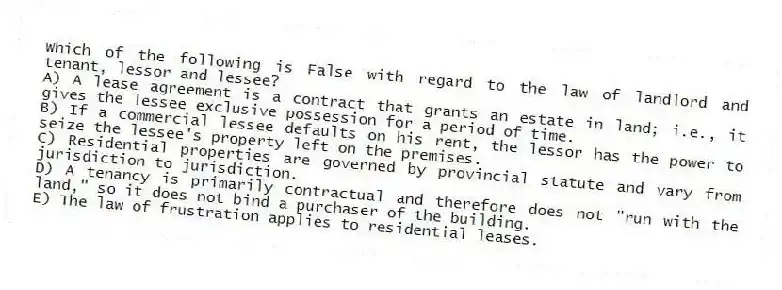
Which of the following is False with regard to the law of landlord and tenant, lessor and lessee?
A) A lease agreement is a contract that grants an estate in land; i.e., it gives the lessee exclusive possession for a period of time.
B) If a commercial lessee defaults on his rent, the lessor has the power to seize the lessee's property left on the premises.
C) Residential properties are governed by provincial statute and vary from jurisdiction to jurisdiction.
D) A tenancy is primarily contractual and therefore does not "run with the land," so it does not bind a purchaser of the building.
E) The law of frustration applies to residential leases.
Correct Answer:
Verified
Q41: Which of the following statements is correct
Q44: Which non-litigious approach is becoming an effective
Q45: Which of the following describes involuntary bailment?
A)
Q46: Jane asked her friend Harry to look
Q48: Real property refers to land only.
Q49: There is an equitable principle that when
Q50: When Joan entered into a contract with
Q53: An estate in the land describes a
Q55: A distinction between real property and personal
Q58: When a person acquires temporary possession of
Unlock this Answer For Free Now!
View this answer and more for free by performing one of the following actions

Scan the QR code to install the App and get 2 free unlocks

Unlock quizzes for free by uploading documents